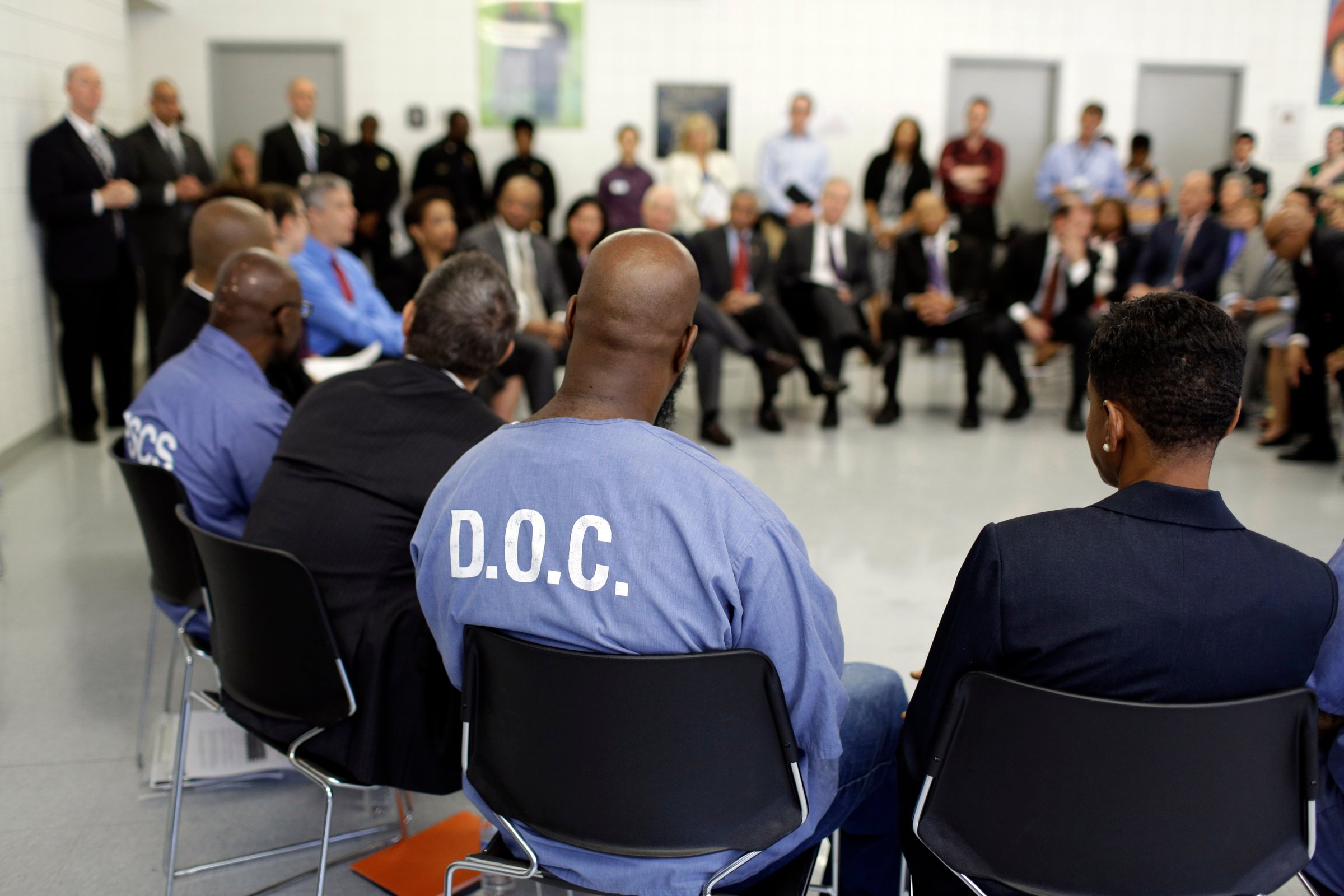
Glenn Martin knows exactly the kind of difference getting an education can make for a person behind bars. When Martin was 23, he was sentenced to six years in prison for robbery. That time, he told TIME on Friday, was arguably the lowest point in his life.
But a meeting he had with a correction’s officer during his early days behind bars in state prison in New York changed his life. After reviewing his file, the officer suggested that he consider advancing his education and enrolling in college courses.
“That was the first time anyone had ever said to me ‘you should go to college,’” Martin says. “I grew up in [the Bedford Stuyvesant neighborhood of Brooklyn]. I distinctly remember people saying the opposite to me.”
While in prison, Martin was able to earn his associate’s degree through a prison education program called the Consortium of the Niagara Frontier, one of New York’s oldest post-secondary correctional education programs. It was in that program that Martin says he was able to consider all of the possibilities that lie ahead of him in life.
“I started to think of myself differently,” Martin says. “I saw hope beyond being in that prison for six years.”
Now, at 43, Martin serves as the president of Just Leadership USA, an organization aimed at significantly reducing the incarceration rate nationwide by 2030. And it was in that role that Martin was invited to attend an event at a prison in Maryland on Friday, where he participated in a roundtable discussion with the U.S. Attorney General and the Secretary of Education.
As TIME reported earlier this week, Attorney General Loretta Lynch and Secretary of Education Arne Duncan traveled to the Maryland Correctional Institution at Jessup to announce that the administration would temporarily grant incarcerated individuals access to federal aid that can help them pay for college. The experimental initiative reverses a 1994 law that blocked state and federal prisoners’ access to Pell Grants which critics say hurt their chances to start over.
The research on the topic of institutional education is clear: according to a 2013 study by the RAND Corporation funded by the U.S. Department of Justice, prisoners who took educational courses behind bars were 43% less likely to return to prison in three years than those who did not. With about 1.5 million Americans behind bars, changing the Pell Grant system could have a major effect.
“America is a nation of second chances. Giving people who have made mistakes in their lives a chance to get back on track and become contributing members of society is fundamental to who we are,” Duncan said in a statement.
Through the pilot program, prisoners who are eligible for release within the next five years and otherwise meet the requirements for federal aid could have access to grants to pay for tuition, fees, books, and supplies. Though the program is limited to Pell Grants and does not apply to any other type of aid, those who work in education are hopeful.
Vivian Nixon, the executive director of the College and Community Fellowship an organization that helps formerly incarcerated women get an education, didn’t have a chance to get an education while she was behind bars. When she was in her mid-thirties, Nixon was sentenced to three and a half years in prison for a series of white-collar crimes.
The possibility of being able to further her education while incarcerated gave Nixon hope, but those dreams were dashed when she was transferred to a prison that didn’t offer any post-secondary education courses. After suffering bouts of hopelessness and depression, Nixon started tutoring other women working toward their GED behind bars. Over the past decade and a half, she’s made it her mission to get the federal government to make it easier for prisoners to get an education.
“Education is transformative,” Nixon says. “When people are educated it opens up a whole set of different choices and without the kind of knowledge or confidence that education brings you can easily slip back into the old habits that landed you in prison.”
For Nixon and Martin, who collaborated to form the Education from the Inside Out Coaltion, an organization that aims to increase educational opportunities for prisoners, Friday was a special day. Both of them saw their handwork come to fruition firsthand.
“For [decades] we’ve dealt with this issue in ways that make for good politics, but bad policy,” Martin said. “This is an opportunity to undo some of that.”
More Must-Reads from TIME
- Why Trump’s Message Worked on Latino Men
- What Trump’s Win Could Mean for Housing
- The 100 Must-Read Books of 2024
- Sleep Doctors Share the 1 Tip That’s Changed Their Lives
- Column: Let’s Bring Back Romance
- What It’s Like to Have Long COVID As a Kid
- FX’s Say Nothing Is the Must-Watch Political Thriller of 2024
- Merle Bombardieri Is Helping People Make the Baby Decision
Contact us at letters@time.com